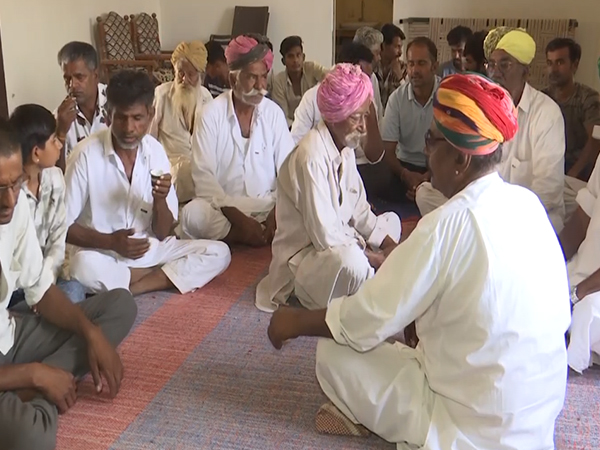Rajasthan’s border villagers welcome suspension of Indus Water Treaty, optimistic about potential benefits

Barmer (Rajasthan) [India], May 1 (ANI): Residents of Barmer and nearby border districts in Rajasthan have welcomed the suspension of the Indus Water Treaty, hoping it will bring much-needed drinking water and support agriculture through canal networks like the Indira Gandhi Canal.
The villagers believe this move will improve access to water, boost agriculture, and address drinking water shortages in the arid region. Residents of Jodhpur, Bikaner, and Jaisalmer echoed similar sentiments. Farmers in the area are optimistic about the potential benefits of utilising the Indus water.
Hakam Singh, a farmer from Tamlor village, said, “Now there is hope that the water of the Indus River will be brought to the area of western Rajasthan, which will greatly improve the agriculture sector. There will be a significant increase in the production of paddy and wheat along with almonds, cashews, dates and other crops.”
Singh noted that people across the region were happy with the government’s decision, which they see as a bold step toward long-term water security.
Another local farmer, Sher Singh Sodha, expressed faith in the central government’s ability to bring water from the Indus River to Rajasthan’s desert areas.
“People have a lot of faith in the Modi government. When Narmada River water can be brought to Barmer from hundreds of kilometres away, then water from the Indus River can also be brought. Water from the Indus River can be brought to the desert areas of Rajasthan through the Indira Gandhi Canal,” he added.
Sher Singh Rana, a resident of the region, linked the suspension of the Indus Water Treaty to national security and regional development. “The will power of the government is the hope of the people here,” he said, also expressing solidarity with the people of Punjab and Haryana.
The suspension of the Indus Water Treaty is seen as a potential solution to the drinking water crisis and a way to boost agriculture in the border areas. Locals believe it could bring revolutionary growth in agriculture and address water scarcity issues.
“This step of the government related to the security of the country can reduce the drinking water crisis and bring revolutionary growth in the field of agriculture,” Rana added.
The government’s decision to suspend the Indus Water Treaty comes after a series of meetings, including the Cabinet Committee on Security (CCS), which will discuss security preparedness in the wake of the Pahalgam terrorist attack. The government has announced a series of measures to send a strong message to Pakistan for its support of cross-border terrorism.
Prime Minister Narendra Modi convened a meeting of the Cabinet Committee on Security (CCS) on Wednesday, followed by the meetings of the Cabinet Committee on Political Affairs (CCPA), the Cabinet Committee on Economic Affairs (CCEA), and a full Cabinet meeting.
The CCS, which convened for the second time following the Pahalgam attacks, discussed security preparedness.
The Cabinet Committee on Security (CCS) last met on April 23 and was briefed in detail on the terrorist attack in Pahalgam, in which 25 Indians and one Nepali citizen were killed.
The government announced a series of measures, including holding the Indus Water Treaty in abeyance, in a strong message to Pakistan for its support of cross-border terrorism. (ANI)
This story is not been edited by Take One Television & Digital Network Staff and is auto-generated from syndicated feed






